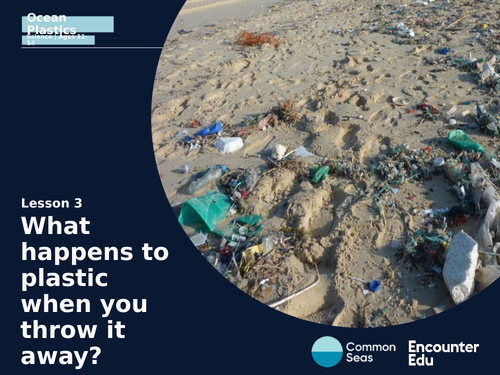






In this chemistry Key Stage 3 (KS3) lesson, students investigate rates of decay. The lesson is focused on students designing their own investigation to see if plant-based alternatives to plastic will decay faster than oil-based plastic and thus cause less harm to the environment.
Included are teacher resources allowing students to test how a conventional plastic bag decays compares to a compostable bag (using a potato as a substitute).
This investigation replicates the research conducted by Dr Imogen Napper at the University of Plymouth.
This is a single lesson from the Ocean Plastics Science unit. Ocean Plastics Science is a Key Stage 3 (KS3) resource combining both biology and chemistry. Students are taken on the journey of plastic. Exploring how plastics are manufactured, used, and disposed into the ocean. Students will learn the science behind what makes plastics both brilliant for everyday purposes and devastating to our oceans and marine life.
If you liked this resource, please rate and review below. This will help to promote oceans education in schools worldwide.
Something went wrong, please try again later.
Just what I needed! Thank you.
Report this resourceto let us know if it violates our terms and conditions.
Our customer service team will review your report and will be in touch.
